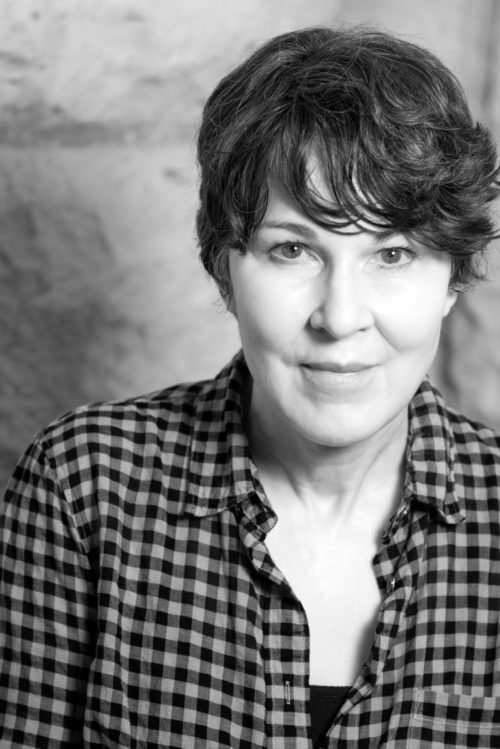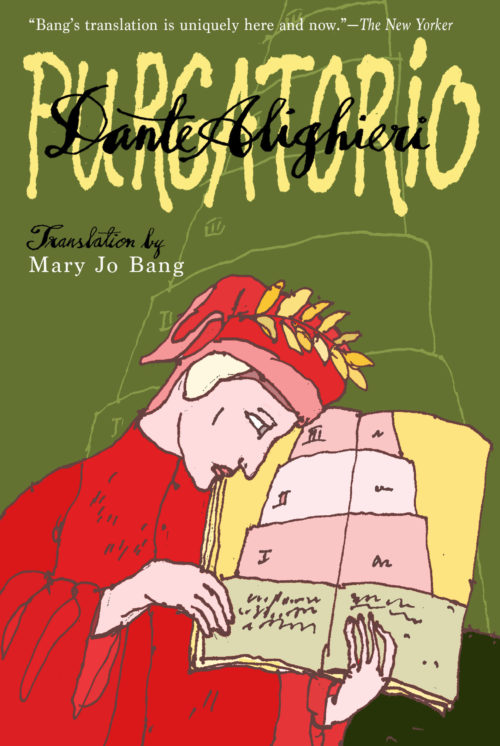The fantastic creature came toward us dressedWholly in white; and in its face, somethingLuminous, like Venus in the morning.The arms opened, then the wings opened;“Come, the graded walkway is near,” it said.“From there on out, the ascent will be easy.Only very rarely does one get this invitation.O human beings, you’re born to fly straight up,Why does a little gust of wind bring you down?”He took us over to a cleft in the rock face; there,He tapped my forehead with his wing, thenPromised that from here, it would be steady-on.The way one climbs the hill on the right,Over Rubaconte Bridge, where the church that keepsThe well-managed under its thumb is perched,And the daunting pitch of the slope is brokenBy stairways built back in an eraWhen measures and ledgers were sacrosanct,So here too, the steep incline coming offThe higher terrace levels out a bit, exceptFor where the high stone wall infringes on it.As we were in. the midst of making the turn:“Blessed are the poor in spirit,” in a singsong voice,Nothing at all like how it sounds in a sermon.Ha! How different the hallways here areFrom those in Hell. Here songlike chantingUshers one in; down there, shrieks and moans.Now, mounting the sacred stairway, it seemedTo me that I was already much lighter,Lighter even than before on the flat plain.Which led me to ask my teacher, “What typeOf gravity have I been released from, that climbingThe steps is now more or less effortless?”His answer: “When the remaining PsStill on your forehead—although fading—Will like the other one, be completely removed,Your wish to do good will so convince your feet,They’ll not only feel no fatigue, they’ll beEven happier when you hurry them along.”At that point, I did what people caught unaware doWhen they suspect, based on how others are acting,That they may have something on their face—Which is to use the hand to help settleThe question by feeling around and finding outWhat can’t in the moment be solved by seeing—With the fingers of my right hand, it was easyTo find that of the letters carved on my foreheadBy the one with the key, there were now only six.Glancing over at that, my guide smiled.
Canto XII (excerpt)
Feature Date
- June 1, 2022
Series
- Translation
Selected By
Share This Poem
Print This Poem
Excerpt from Canto XII from Purgatorio.
Translation copyright © 2021 by Mary Jo Bang.
Used with the permission of Graywolf Press, Minneapolis, Minnesota, www.graywolfpress.org

Dante Alighieri, the Italian poet and scholar, is best known for his masterpiece La Commedia (known in English as The Divine Comedy), which is universally considered one of world literature’s greatest poems. Divided into three sections—Inferno, Purgatorio, and Paradiso—The Divine Comedy presents an encyclopedic overview of the mores, attitudes, beliefs, philosophies, aspirations, and material aspects of the medieval world.

Mary Jo Bang is the author of eight books of poems—including A Doll for Throwing and Elegy, which received the National Book Critics Circle Award—a translation of Dante’s Inferno, illustrated by Henrik Drescher, and a translation of Purgatorio. She has received a Hodder Fellowship from Princeton University, a Guggenheim Fellowship, and a Berlin Prize Fellowship. She is a Professor of English at Washington University in St. Louis where she teaches creative writing. Colonies of Paradise, translations of poems by the German poet and novelist Matthias Göritz, is forthcoming from TriQuarterly Books in October.
“In her rich and exciting translation, Bang shows how this story for all time is a story for our time.”
—Chicago Review of Books
“‘Luminous, empathetic, and inventively reverent, this thrilling sequel to Bang’s Inferno maps a passage between hell and heaven for our purgatorial historical moment. . . . Above all, this ingenious and artful translation reminds us that Dante’s Purgatorio, like the divine comedy in which we are all extras, is a poem about love.”
—Srikanth Reddy
“After Mary Jo Bang’s brilliant time-traveling Inferno, I couldn’t wait for her Purgatorio, which turns out to be every bit as meaty, luscious, erudite, straight-talking, and joyful as I had hoped. Bang has an uncanny sense of how to slip inside and between Dante’s lines, guiding us along his most perilous paths.”
—Susan Bernofsky
Poetry Daily Depends on You
With your support, we make reading the best contemporary poetry a treasured daily experience. Consider a contribution today.




